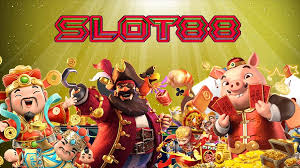Betting has been an integral part of human culture for millennia, سایت بدون فیلتر جت بت evolving from simple games of chance to highly sophisticated systems that span industries and connect millions of people worldwide. Whether in the form of horse races, sports betting, or casino games, the world of betting offers not only the excitement of the risk but also a deep psychological and economic component. In this article, we will explore the history, evolution, and impact of betting, along with some ethical considerations.
The History of Betting: From Ancient Times to the Modern Era
Betting is an ancient practice that dates back to civilizations like the Romans and Greeks, where citizens placed wagers on gladiatorial combat, chariot races, and other events. The concept of risking something of value for the potential of greater gain quickly spread across the globe. In ancient China, gambling was an important social activity, with the development of games such as dice and betting on animal fights. Similarly, in ancient Egypt, betting and games of chance were often linked to religious and ceremonial practices.
During the 17th and 18th centuries, as the modern world began to take shape, betting became more formalized. The rise of European monarchies led to the establishment of regulated betting markets, particularly in horse racing. The first recorded legal bet in England occurred in 1682 at Newmarket, marking the beginning of organized sports betting in the West. By the 19th century, betting had evolved into a global pastime with the advent of public sports such as football, baseball, and cricket, as well as casino games like blackjack, roulette, and poker.
The Rise of Online Betting: Revolutionizing the Industry
The most significant shift in betting history came in the late 20th century with the advent of the internet. The 1990s saw the birth of online casinos and sportsbooks, providing an unprecedented level of accessibility for bettors. What was once limited to land-based establishments now became a global phenomenon, with users able to place bets from anywhere with an internet connection.
This digital transformation brought new challenges and opportunities. On the one hand, online betting platforms democratized gambling by opening doors for people worldwide to participate. On the other hand, it introduced complexities such as the need for secure financial transactions, fair play regulations, and consumer protection.
Additionally, the rapid growth of mobile technology in the 2000s further fueled the boom in online betting. Mobile apps for betting became mainstream, allowing users to place wagers on the go, further integrating betting into daily life. Whether on sports, e-sports, or virtual gaming, the online betting market expanded, offering a dizzying array of options for bettors of all kinds.
Types of Betting: From Sports to eSports
Betting has evolved far beyond traditional horse racing or casino games. Today, there is a diverse range of betting options, with some of the most popular forms being:
- Sports Betting: From football to basketball, tennis, and even niche sports like rugby or darts, sports betting is arguably the most popular form of betting worldwide. Bettors place wagers on the outcomes of games, races, or matches, predicting which team or athlete will come out on top.
- Casino Games: Classic casino games such as blackjack, poker, and roulette have been staples of gambling for centuries. The development of online casinos brought new iterations and variations of these games, creating endless possibilities for wagers.
- E-sports: Competitive gaming has exploded in popularity in recent years, with millions of fans tuning in to watch professional players battle it out in games like Fortnite, Dota 2, and League of Legends. As the esports industry continues to grow, betting on gaming tournaments has emerged as a booming sector.
- Political and Novelty Betting: In some cases, bettors place wagers on non-sporting events, such as elections, TV show outcomes, or even the weather. These bets are often more speculative and can be a fun way to engage with popular culture.
- Cryptocurrency Betting: With the rise of digital currencies, some online platforms now offer bets in cryptocurrencies like Bitcoin and Ethereum, adding an extra layer of innovation and risk to the world of betting.
The Psychological and Economic Impact of Betting
Betting is not just about risk and reward; it’s deeply connected to human psychology. The thrill of betting often stems from the concept of uncertainty—people love the idea of taking a chance on something with a potentially huge payoff. This unpredictability triggers the brain’s reward centers, producing feelings of excitement and anticipation. The “near miss” phenomenon, in which a bettor almost wins, can be particularly addictive, keeping people engaged with the hope of victory.
However, the economic impact of betting is not always positive. On a macroeconomic level, betting industries generate substantial revenue, contributing to local and national economies, particularly in regions where gambling is legal and regulated. For example, the global sports betting industry was worth approximately $84.19 billion in 2020 and is expected to grow significantly in the coming years.
On a personal level, however, betting can have devastating consequences. Problem gambling, or gambling addiction, is a serious issue that affects millions of people worldwide. The financial and emotional toll of this addiction can lead to ruined relationships, lost jobs, and severe psychological distress. This is why responsible gambling measures, including self-exclusion programs and counseling, are critical to ensuring that the fun of betting doesn’t turn into harm.
The Ethics of Betting: Regulating the Industry
The rapid growth of the betting industry, especially online, has prompted governments and regulators to pay closer attention to the ethical implications of gambling. The ethical concerns around betting include the risk of addiction, underage gambling, and the potential for fraud or money laundering.
To mitigate these risks, many countries have established strict regulations governing betting operations. In the UK, for example, the Gambling Commission ensures that all betting activities are carried out legally and fairly. Operators must adhere to responsible gambling guidelines, such as offering self-exclusion options, and ensuring that players are protected against fraud. Similarly, other countries like Australia and the United States have implemented varying degrees of oversight to ensure fairness and transparency in betting.
The Future of Betting: Technology and Innovation
As technology continues to advance, so too does the world of betting. Artificial intelligence (AI) is already playing a significant role in shaping the future of the industry. AI-powered algorithms can predict game outcomes with impressive accuracy, giving bettors insights into possible outcomes. Machine learning techniques are also helping to improve the integrity of betting markets by detecting patterns of fraudulent activity or suspicious betting behavior.
Virtual reality (VR) is also poised to revolutionize betting, particularly in the realm of online casinos. Imagine being able to walk into a VR casino, interact with dealers, and place bets on a live table from the comfort of your home. This immersive experience could take betting to new heights, providing a truly lifelike experience for gamblers.
Moreover, blockchain technology is set to enhance transparency and security in online betting. By allowing for decentralized betting platforms, blockchain offers the potential for more secure transactions, ensuring that bettors and operators alike are protected from fraud and cheating.
Conclusion: Betting in Balance
Betting is a complex and multifaceted world that has evolved considerably throughout history. From ancient times to the digital age, it has provided entertainment, excitement, and sometimes financial success for those who participate. However, as with any form of risk, there are dangers associated with gambling. The rise of online platforms, along with increased access to betting, has made responsible gambling more important than ever.
In a world where betting is only growing in scope and popularity, it is essential to maintain a balance—celebrating the excitement of the game while protecting the well-being of individuals and communities. By understanding the history, psychology, and ethical implications of betting, we can continue to enjoy this age-old pastime while ensuring it remains a fair, safe, and responsible activity.


